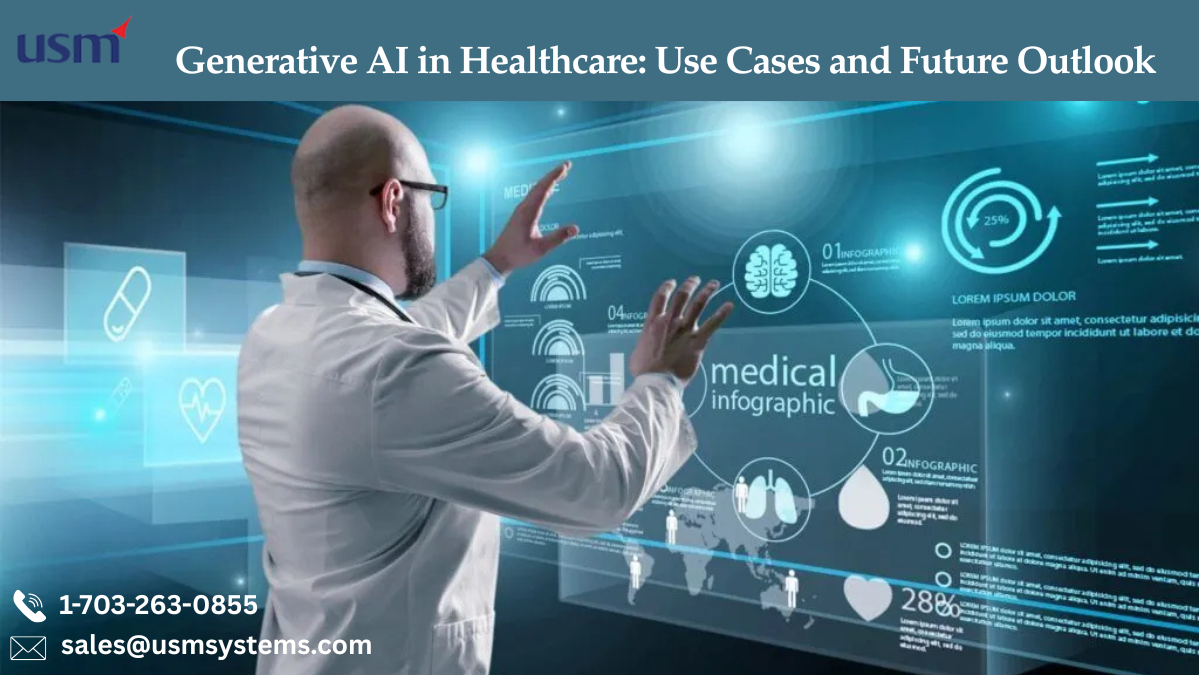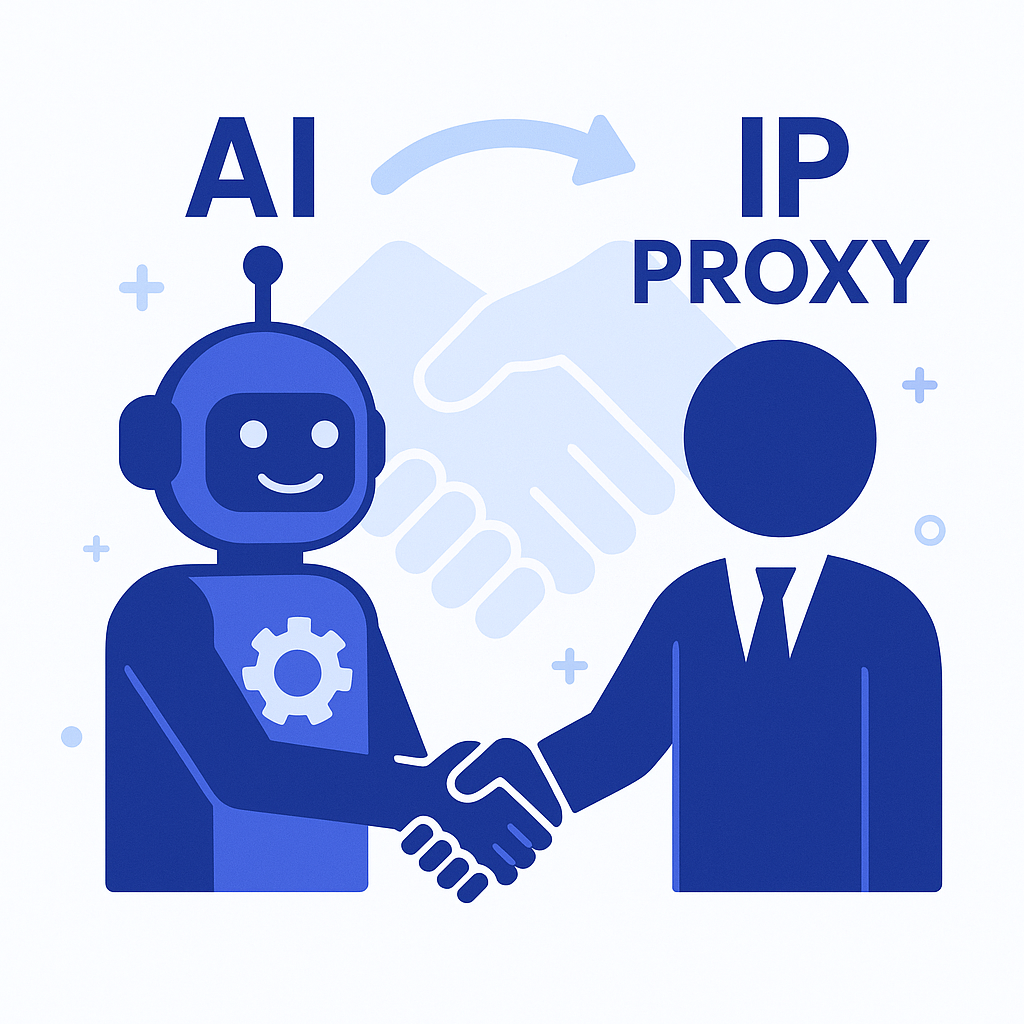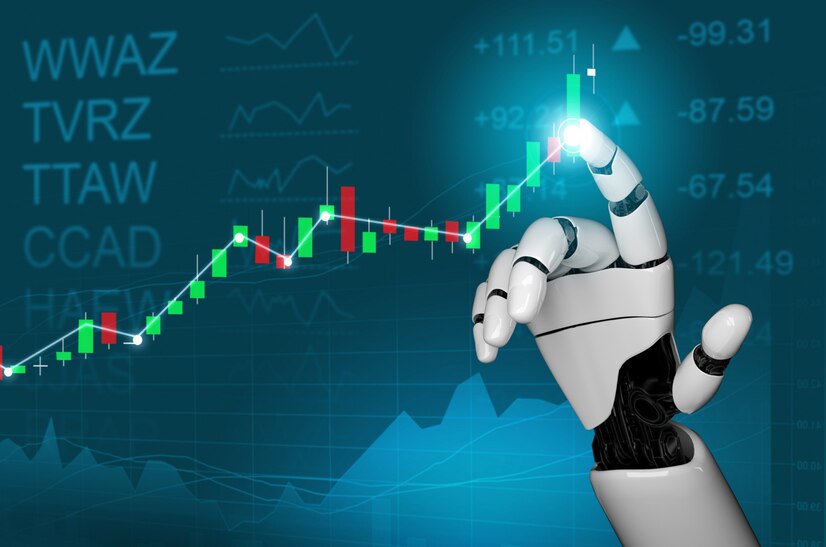Generative AI in Healthcare: Use Cases and Future Outlook

Strong 8k brings an ultra-HD IPTV experience to your living room and your pocket.
The healthcare industry is undergoing a digital transformation, and at the heart of this revolution lies Generative AI. As a branch of artificial intelligence that can create new content, images, text, and even molecular structures, generative AI is driving innovation like never before. When integrated effectively, AI in healthcare has the potential to reshape how we diagnose diseases, develop medications, manage patient records, and personalize treatment.
In this blog, we’ll explore the key use cases of generative AI in healthcare, the benefits it brings, and what the future of AI in healthcare looks like.
What is Generative AI?
Generative AI refers to advanced algorithms—such as Generative Adversarial Networks (GANs) and large language models (LLMs)—that can generate new data from existing patterns. Unlike traditional AI, which primarily analyzes data, generative AI can simulate, predict, and create new possibilities. In the context of healthcare, this capability is opening new doors for innovation in research, diagnostics, and patient care.
Use Cases of Generative AI in Healthcare
1. Medical Imaging and Radiology
Generative AI is significantly improving the accuracy and speed of medical imaging analysis. It can:
- Reconstruct high-quality scans from low-resolution inputs.
- Enhance MRI and CT images.
- Generate synthetic images to train diagnostic models.
These applications improve early disease detection and reduce the workload for radiologists, making AI in healthcare both more effective and efficient.
2. Drug Discovery and Development
Drug development is a lengthy and expensive process. Generative AI streamlines this by:
- Designing novel drug molecules.
- Predicting how molecules interact with the human body.
- Simulating outcomes before real-world trials.
This reduces development time and costs, leading to faster delivery of life-saving treatments.
3. Personalized Medicine
One of the most promising areas of AI in healthcare is personalized medicine. Generative AI can analyze genetic data, medical history, and lifestyle information to:
- Tailor treatment plans to individual patients.
- Predict responses to medications.
- Monitor long-term health outcomes.
This not only improves patient satisfaction but also boosts the overall effectiveness of care.
4. Synthetic Health Data Generation
Healthcare data is sensitive and regulated. Generative AI solves privacy concerns by creating synthetic datasets that mirror real patient data without exposing personal information. These datasets are useful for:
- Training machine learning models.
- Conducting clinical research.
- Enabling collaboration between institutions.
Synthetic data helps accelerate research while maintaining compliance with regulations like HIPAA and GDPR.
5. Automated Clinical Documentation
Doctors often spend hours documenting patient visits, which can lead to burnout. Generative AI automates clinical documentation by:
- Converting voice notes into structured medical records.
- Writing discharge summaries.
- Generating prescriptions and referrals.
This streamlines administrative tasks and allows healthcare providers to focus more on patient interaction.
6. Virtual Health Assistants
AI-powered virtual assistants are becoming an integral part of digital health platforms. These assistants:
- Provide 24/7 support to patients.
- Answer health-related questions.
- Help schedule appointments and reminders.
- Offer mental health support through AI chatbots.
Virtual health assistants powered by generative AI improve accessibility and patient engagement.
7. Mental Health and Therapy
Generative AI is making mental health care more accessible through apps that simulate therapeutic conversations, provide mood tracking, and offer personalized CBT (Cognitive Behavioral Therapy) content. These solutions offer immediate support to those in need and help bridge the gap in mental healthcare availability.
Future of AI in Healthcare: What to Expect
As we look ahead, the future of AI in healthcare is poised to be transformative, with several key trends and innovations on the horizon:
1. Predictive Healthcare Models
Generative AI will allow for proactive rather than reactive healthcare. AI models will predict disease risks based on lifestyle and genetics, enabling preventive care and early intervention.
2. AI-Augmented Surgeries
Future surgeries will see AI assist surgeons by providing real-time guidance, highlighting areas of concern, and even simulating procedures beforehand. Generative AI will help create 3D anatomical models for pre-surgical planning and education.
3. Smarter Health Wearables
With the growth of wearables, generative AI will analyze real-time health data and generate insights that help users manage chronic conditions, improve fitness, and detect early symptoms of illness.
4. Immersive Medical Training
Medical professionals will benefit from AI-generated simulations, virtual patients, and realistic training environments, making education more interactive and effective.
5. Global Health Equity
Generative AI can extend quality healthcare to underserved regions by powering virtual consultations, mobile diagnostics, and AI-driven public health tools. This shift will bridge the gap in healthcare accessibility worldwide.
Challenges to Consider
Despite its vast potential, AI in healthcare faces several challenges:
Data privacy and security: Maintaining patient confidentiality is critical.
Bias and fairness: AI models must be trained on diverse datasets to avoid bias.
Regulatory compliance: Governments must establish frameworks to ensure ethical and responsible AI use.
Trust and transparency: Healthcare professionals and patients need to understand how AI makes decisions.
Overcoming these challenges will be essential to realizing the full future of AI in healthcare.
Conclusion
Generative AI is not just a buzzword—it’s a powerful tool that's already transforming the way healthcare operates. From revolutionizing diagnostics to creating personalized treatment plans, the role of AI in healthcare is expanding rapidly. As we look to the future, we can expect AI to enhance every aspect of patient care, research, and health system efficiency.
The future of AI in healthcare holds the promise of a smarter, more responsive, and more equitable healthcare ecosystem. Healthcare providers, innovators, and policymakers must collaborate to harness this technology responsibly, ensuring that patients everywhere benefit from the next wave of digital health innovation.
Note: IndiBlogHub features both user-submitted and editorial content. We do not verify third-party contributions. Read our Disclaimer and Privacy Policyfor details.







